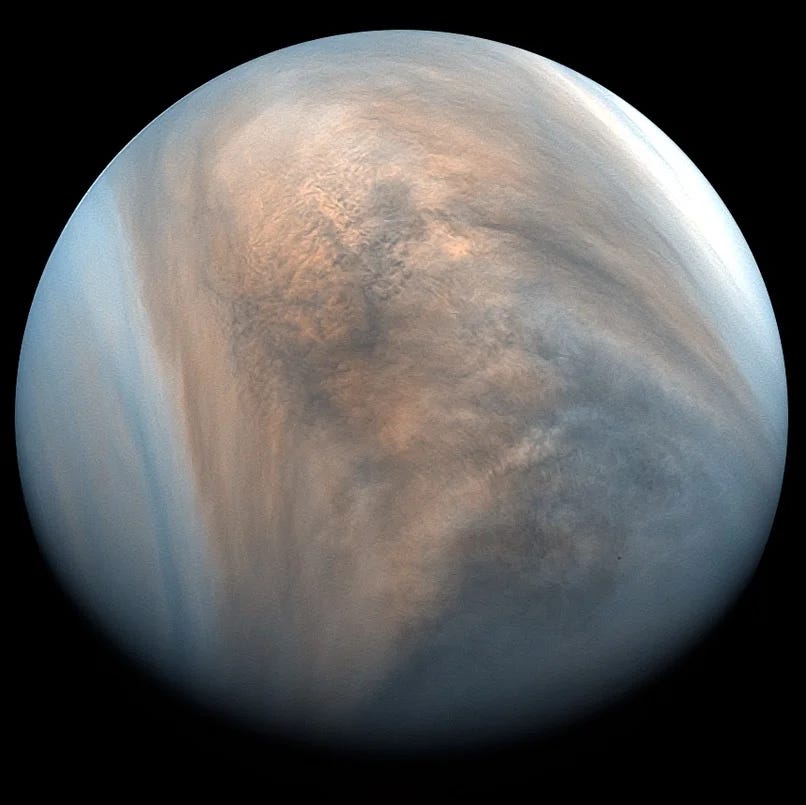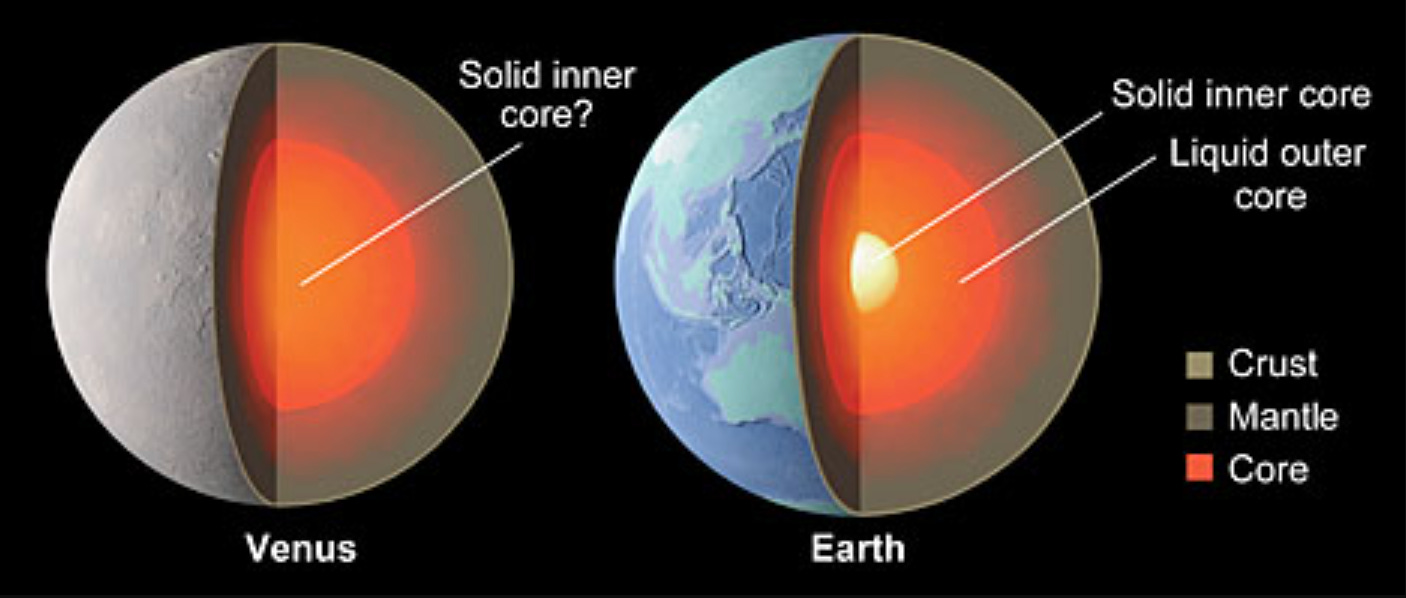Venus is Weird!
Discussing 3 unusual phenomena that make the planet Venus intriguing for astrophysicists
Venus, often alluded to as Earth's 'sister planet', paints a deceptively familiar picture with its proximity and similar size. But Venus is weird! As scientists pierce through its thick veil of clouds, a slew of unusual characteristics emerge.
In this article, we discuss what are, in my opinion - three of the weirdest characteristics of Venus.
1. Venus Rotates Clockwise
For the casual observer, the direction a planet rotates might seem inconsequential. However, nearly all celestial bodies pirouette counterclockwise. Venus, on the other hand, dances to its own tune, rotating in a clockwise fashion.
Reasons for its Retrograde Rotation
Giant Impact Hypothesis
Drawing from the rationale behind our Moon's formation, some scientists posit that a celestial body the size of Mars might have collided with Venus. Such an impact, while catastrophic, could have reversed its rotation, resulting in the retrograde spin we observe today.
Tidal Effects
The Sun's immense gravitational pull has a pronounced effect on nearby planets. Over billions of years, this pull might have slowed Venus's rotation, and if Venus initially had even a slight retrograde spin, these tidal interactions could have amplified it.
Factoid
Were you to stand on Venus's surface (braving its hostile environment), you'd witness the surreal spectacle of the Sun rising in the west and setting in the east, a direct consequence of its retrograde rotation.
2. The Slow Spin of Venus
Venus holds the record for the longest day in our solar system. Clocking in at 243 Earth days, its day surpasses even its year, which lasts about 225 Earth days.
Reasons for its Slow Rotation
Giant Impact
Furthering the impact theory, an early collision could have imparted a significant amount of angular momentum, slowing down Venus's spin to its current languid pace.
Atmospheric Drag
Venus's thick atmosphere, about 92 times the pressure of Earth's at sea level, could create substantial drag. As winds move against mountainous regions and plains, they might decelerate the planet's rotation.
Gravitational Tidal Effects
Continuous gravitational interactions, especially with the Sun, could have steadily slowed Venus's rotation over time. This deceleration, compounded over billions of years, might have resulted in its current slow spin.
Factoid
With such a protracted day-night cycle, temperatures don't vary much between daytime and nighttime on Venus, despite its surface being hotter than a conventional oven!
3. The Missing Magnetic Field
A magnetic field serves as a protective shield, repelling solar winds and cosmic radiation. Earth's robust magnetic field, for instance, plays a vital role in preserving our atmosphere and maintaining habitable conditions. Venus, however, lacks this protective cocoon.
Reasons for Venus's Absence of a Strong Magnetic Field
Core Differences
Preliminary data suggests Venus's core might be similar to Earth's. Yet, the lack of a magnetic field implies there might be differences in how its core cools or in its overall dynamics.
Historical Geological Activity
Some researchers theorise that Venus underwent a planet-wide volcanic resurfacing event around 500 million years ago. Such massive geological upheavals might have reset its magnetic properties.
Rotation Speed
The dynamo theory, which explains Earth's magnetic field, relies on the motion of molten metal within its core. Venus's sluggish rotation could prevent such dynamics, inhibiting the generation of a strong magnetic field.
Factoid
Despite its lack of a strong intrinsic magnetic field, Venus does have a weak magnetosphere, generated by the interaction of the ionosphere with the solar wind.
Comparing Venus to Earth
At first glance, Venus might seem Earth-like with its rocky surface and atmospheric clouds. However, its surface temperatures exceed 900°F (475°C), hotter than the surface of Mercury despite being further from the Sun. This hellish environment, a result of an extreme greenhouse effect exacerbated by its dense atmosphere and slow rotation, offers a cautionary tale about the impacts of runaway climate change. The prolonged exposure to sunlight, combined with the dense carbon dioxide atmosphere, traps heat efficiently, turning Venus into a scorching world.








Very nice.
I look out my back door every night (the back of my house faces west) and see Venus rising, right as the bats are starting to fly around.
Love it! Light read, true facts with a twist od humour ! Love it!